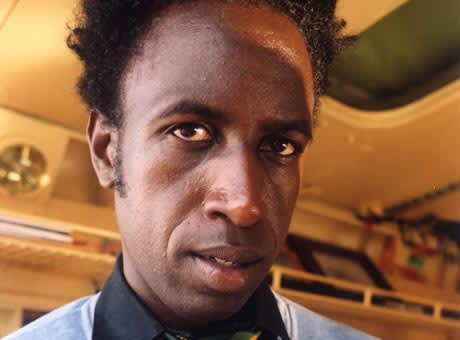What has been most interesting, following Saul Williams musical career, has been tracking the musical development as it has struggled to keep up with and finally equal the energy and chaos that exist in his spoken words. On his self-titled and predominantly self-crafted second outing, the poet-actor-musician has finally located the only imaginable pairing for his mile-a-minute verbal assaults. Adopting a punk aesthetic, undoubtedly influenced by one-time tour mates the Mars Volta, to coincide with his ever-present foundations in hip-hop and penchant for hard rock guitars and scatterbrained electronics, Williams constructs a musical framework as far reaching in style and points of reference as his subject matter. "Grippo provides a perfect example of this marriage, melding a classic though hyperactive hip-hop break, growling bass line and maniacal guitar riff with the poets pronouncement that hip-hop is exactly where it belongs, despite the many unexpected shifts in direction and likely participants that have occurred within the genre. "Reparations has Williams in his punkiest form, singing out in high pitch his list of demands over a machine gun guitar and drum pattern. The albums most poignant and focused track is undoubtedly "Black Stacey, which starts out as a piano and hi-hat shuffle before breaking out in a thundering break-beat, while Williams recounts a seemingly biographical childhood tale of wanting to escape his being called "too black by the other kids at school, before becoming more militant as a result. As with everything he does, this album encompasses the full range of Saul Williams messages and ideas. Its nice to see the final piece to this complex puzzle finally coming into full fruition.
(Fader)Saul Williams
Saul Williams

BY Kevin JonesPublished Oct 1, 2004